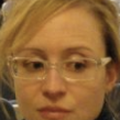Goal
Community Commons is a place to discuss topics and post documents and references relating broadly to medical humanities.
Members
-

Organizer/ Contact
-

Participant
-

Participant
-

Participant
-

Abigail Neely, PhD
Member
-

Member
-

Member
-

Member
-

Member
-

Mark Williams, PhD
Member
-

Neil Vickers, BA DEA MPhil DPhil
Member
- View all
Start a discussion or post your ideas
CFP: 2021 CAA session on art therapy
We hope you will consider submitting proposals to a session we are co-chairing on art therapy at the 2021 College Art Association conference. Below is the session abstract and here is a link with details on how to submit a proposal by the deadline of Wed, September 16. The conference will take place virtually online on February 10-13, 2021 (even though parts of CAA’s website still list the location as New York).
Please reach out to us with questions and/or preliminary ideas before the deadline!
Best wishes,
Tanya Sheehan, Colby College -[email protected]
Suzanne Hudson, University of Southern California -[email protected]
----
Modern Art and/as Therapy
Histories of modern art have had little to say about art therapy, despite its widespread practice in the United States, where it emerged out of psychology and progressive education in the early twentieth century. Indeed, creative art making and viewing came to be commonplace in hospitals, clinics, community centers, and prisons, fueled by a belief in the transformational power of art for psychological diagnosis and healing. This session seeks to explore the conversations between the therapies associated with these extra-artistic spaces and the modernism that visual arts developed at the same time. We invite papers dealing with the visual language and theories shared by art therapy and modernism; conceptions of modernism as therapeutic in popular and fine-artistic discourses; modernist artists’ own encounters with art therapy in clinical settings; and art therapy’s entry into the spaces of modernism, including the art museum and gallery. We especially encourage interdisciplinary papers that situate case studies in relation to discourses in medical humanities, disability studies, and related fields.
Tanya Sheehan, Colby College | 13 Sep 2020
There is no recent activity
Keepers of the House- a unique video about the empathic connections between hospital housekeepers and patients
We've recently completed work on Keepers of the House. The 15 minute documentary includes interviews with eight hospital housekeepers and features remarkable stories about the ways in which they provide emotional support to patients and their families. It. is primarily designed for health care students and providers .with. important. lessons about empathy, humility and teamwork..
The link to the film is:.
https://sites.fhi.duke.edu/healthhumanitieslab/portfolio/keepers-of-the-house/
Neil Prose MD
Co-Director Duke Health Humanities Lab
[email protected]
Neil Prose, Duke University | 4 Dec 2019
There is no recent activity
Aging and Social Justice (ICLS, Columbia University)
Aging and Social Justice
Director: Neni Panourgiá.
Curator: Veronica Sousa (Princeton University, PhD 2022)
How is aging to be understood as an issue of social justice? Though recent activism concerning issues of race and police brutality, Islamophobia, and feminism and gender have been at the forefront of deeply important work, issues of disability and aging often get left behind. Though disability gets drawn into the work of intersectional feminism, aging most go along with it.
Aging must also be a cornerstone for social justice activism on its own terms. In our discussions of aging as an issue of social justice, we must discuss the following categories, among others:
• Pathologies of aging
• Mental health
• Loneliness
• Gendered, racial, and class issues
• Disability
• Intimate violence
• Social Security and pensions
• Family and caretakers
• Life fulfillment, joy, and time
In this module, we ask that you may consider aging as a social justice issue, and how these many intersectional issues fall under it as well. We hope to conceptualize aging in such a way as to open up a dialogue between scholars, students, medical professionals, artists, care-workers, and activists surrounding the idea of aging in the United States and around the world.
Veronica Sousa, Columbia University | 18 Apr 2017
There is no recent activity
Events update
Hi all. Just a quick note to say that some new events have been posted to the site's calendar, and if you have anything that you'd like me to add to this month's newsletter (CFPs, conferences, new publications, etc.), you can shoot me an email.
Grant Wythoff, Columbia University | 5 Apr 2017
There is no recent activity
CFP: Malawi Medical Humanities Network (due April 21)
Hosted by Chancellor College University of Malawi, 24 & 25 August 2017
Chancellor College is pleased to announce a 2-day international medical humanities conference to be held at the college’s Great Hall in Zomba, on 24th & 25th August 2017. In Europe and North America, medical humanities is understood as an emerging discipline which explores the social, historical and cultural dimensions of medicine. This conference offers a formal space to further our understanding of how illness, wellbeing, medicine & treatment intersect with the arts and humanities and to encourage discussions about what these concepts mean in an African context. It provides a highly interdisciplinary platform for a diversity of perspectives and inquiries into African concepts of health and wellbeing. Malawi’s own scholars–the late Professors Steve Chimombo and Chris Kamlongera–were pioneers in bringing the arts into conversation with health, community and development. We aspire to showcase the vibrant, contemporary medical humanities research within Malawi and throughout the African continent.
We invite 20-minute papers on the following subjects including, but not limited to:
The history of medicine and healthcare
Medical ethics
Medical anthropology
Literature, poetry and medicine
Visual and performed arts and the body
Representations of illness and treatment
Communication in health care
Religious/spiritual perspectives on health
Sociology of medicine
The caregiver/patient relationship
Healthcare architecture and design
Disability studies
Medicine and the law
Globalisation and healthcare practices
Please send an abstract (approximately 300 words) and short biographical note to the conference organisers by no later than Friday 21 April 2017. Proposals and all enquiries should be addressed to the
Proposal Review Committee at [email protected].
Conference details and updates will be posted to https://malawimedhumsnetwork.wordpress.com.
This conference is hosted by the Department of English, Faculty of Humanities at Chancellor College University of Malawi with funding from the Wellcome Trust and collaborators at University College London and the University of Edinburgh’s Centre of African Studies.
Grant Wythoff, Columbia University | 28 Mar 2017
There is no recent activity
A First Reaction to Atul Gawande's "Being Mortal"
I have just finished reading Atul Gawande’s Being Mortal. I have many things to say about the book—and hope this post will start off a conversation among ourselves of the issues the book raises.
At the broadest level, Gawande’s book advocates for a shift in focus from disease to “well-being,” especially in medicine’s dealing with the elderly. Doctors and other care-givers should be enabling well-being, not focused on defeating disease. His position resonates with the interest in well-being that surfaced at our 2016 meeting in London. So thoughts on that topic are especially welcomed in this forum.
Right now, however, I want to focus on a different point. On assisted suicide, Gawande writes: “In the Netherlands, the system [for allowing and enacting assisted suicides] has existed for decades, faced no serious opposition, and significantly grown in use. But the fact that, by 2012, one in thirty-five Dutch people sought assisted suicide at their death is not a measure of success. It is a measure of failure. Our ultimate goal, after all, is not a good death but a good life to the very end” (244-45).
One in thirty-five seems to me a very low percentage. But, more to the point, this passage comes fairly late in a book that has described, in excruciating (to this layperson) detail, massive surgical interventions on the bodies of eighty and ninety year old patients—while also documenting how such interventions rarely prolong life significantly. A major theme of the book is how surgeons and others rarely manage to convey an accurate sense of the time-frames involved when such interventions are undertaken: patients and their families usually think they are buying five to ten years when twelve to eighteen months is much closer to the mark.
Yes, the book does consistently argue that those extra twelve to eighteen months can be worth living, especially if doctors, patient, and family have all explicitly identified concrete and realistic goals for that time period. But the book also shows how difficult it is to say that this next intervention, even if it buys some extra time, will actually buy anything approaching a life worth having. Everything in the book demonstrates just how difficult (close to impossible in fact) it is for patients and families to choose death, even where that is the most sensible choice. Meanwhile, doctors are just about professionally and ethically completely forbidden to recommend death.
It would require a sea-change in sensibility for people to face up to the ending—and to not grasp at medical straws. That the Netherlands has made some progress (1 in 35?!) toward effecting that sea-change seems to me a noteworthy accomplishment. Gawande's examples of what it means to live “to the very end” did not convince me that those last 12 months or so were actually worth living. They more often seemed like medical horror shows to me.
--John McGowan
John McGowan, University of North Carolina, Chapel Hill | 1 Dec 2016
There is no recent activity
October update + Zotero group
Hi everyone-
I'm writing as the new point person for our CHCI Medical Humanities Website, and am happy to field any questions you may have about the group. I'll be sending out updates from time to time that highlight a different aspect of the site's functionality. For now, I'd like to point out that the "recent research" feed on the website's "news and events" page is drawn from a shared Zotero library. The idea is to get a sense of what scholars from across the field are working with/on. For those of you who are Zotero users, you can join the group and contribute your references to the shared library here: https://www.zotero.org/groups/chci_medical_humanities
Please also note that applications to host next year's Summer Institute are due this Saturday, October 15, and there are several postdoctoral positions in medical humanities that have been posted on the homepage.
That's all for now!
Best-
Grant
Grant Wythoff, Columbia University | 9 Oct 2016
Grant:
Our 2017 summer meeting will be held May 19th and 20th at the University of Miami in Florida. Could you please send out a "save the date" notice to the web site's members, as well as posting that information on the web site? Full program and registration information will be available by mid-February. Your note should also stress that this is not a closed group; we very much welcome new-comers to the meeting--and to the network.
Thank you.
John
John McGowan, University of North Carolina, Chapel Hill | 1 Dec 2016
There is no recent activity
All registered members of this website can join the Commons to hold discussions and post documents and references.
Sarah Greene, Columbia University | 10 Mar 2016
There is no recent activity
